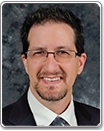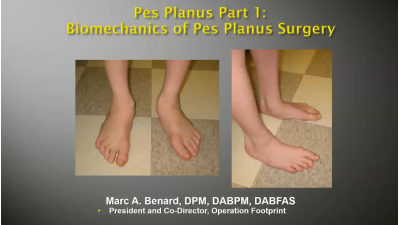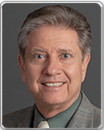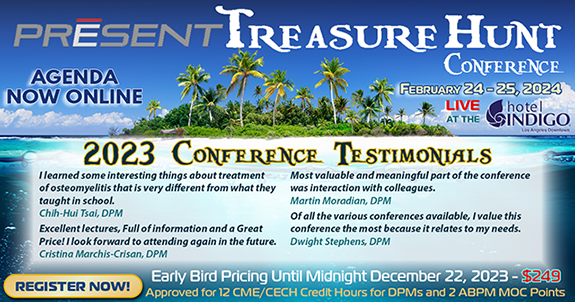
Practice Perfect 892
Understand the Residency Interview
Understand the Residency Interview

It’s coming. Like an unstoppable juggernaut to sweep our 4th year students away, the CASPR/NMS CRIP, the residency interviews, are coming. Hearts start beating faster just thinking about it. It’s a highly nervous time for all of our residency applicants, as so much rides on these interviews. But despite the stakes, the interviews must happen. To help make this process just a tiny bit easier, let’s talk about some specifics.
Format
As you know, the interviews are being held in Frisco, Texas at the Embassy Suites. Some applicants stay in the hotel, wanting to make the process less complicated, while others prefer to stay elsewhere to get away from the stress. This one’s a personal preference. I didn’t want to worry about travelling to the hotel, so I stayed in the same hotel when I interviewed.
The inside of the hotel looks like a very tall box with many floors, all of which are visible from the center, and the interviews themselves take place either in the programs’ hotel rooms or in rented conference rooms. Applicants sit outside the rooms waiting for their turn to come. You will see various groups of students standing around in the lobby trying to look calm and cool while inside they’re very nervous. Don’t let them fool you if you’re one of those nervous people.
It's a little weird being interviewed in a suite but try not to let it intimidate you. The same is true for the conference rooms. The conference rooms potentially hold a larger number of people, so be ready to walk in to either a crowd of examiners or very few. Flexibility is the key!
Now, if you think of the limited possible formats for the interviews themselves, you’ll realize that will be to your benefit. Consider what options are possible: case workups, rapid-fire questions, questions about visuals such as radiographs, social questions, and demonstrations of hand skills like suturing, hand-ties, or some physical manipulative skill that simulates podiatric hand-skills. If you haven’t already, study and prepare for these types of interactions. Also remember that the interviews are heavily time-limited at somewhere around 20-30 minutes/interview, so there is a limit to what the programs can ask.
Remember, a couple of other points. If you did a clerkship or visited your programs, you will – to some extent – know the people interviewing you and vice versa. That should make your interview a little less scary (hopefully). Remember also that the people interviewing you likely know a lot more podiatry than you do, have a ton more experience, and spent time to create their interview to gather what they feel is the most important information about you. You can not “fake it till you make it.” So, just be honest in your answers, think out loud (so they can understand your thought process), and realize that their reactions to your answers may give you no indication that you answered the question correctly. They may even deliberately make you feel that you answered the question incorrectly to see how you can handle yourself.
Study for the Interview as If YOU are the Interviewer
Since it is impossible for you to predict any of your interviews, the only thing you can do is prepare ahead as much as possible. I suggest thinking as if you are the interviewer. What information would you want to know if you were the interviewer? What excellent qualities would a strong applicant demonstrate during the interview? Let’s go through a few possibilities.
Knowledge – Obviously a strong knowledge base is imperative, especially after 4 years of podiatry school. Hopefully you’ve been studying all along and are already prepared to answer academic questions. At this point, I suggest focusing on the information most likely to be questioned. For example, common pathologies such as infections, wounds, flatfoot procedures, bunions, etc are likely to be presented as cases. Remember that – unfortunately – classifications tend to be asked a lot too.
Start with a strong basic knowledge base.
Attitudes – There’s nothing to “study” here, but you should be ready to walk into the interview with a confident demeanor, looking everyone in the eye, and not looking too nervous. Use a firm handshake, look everyone in the eye, and stay calm during the entire interview. Don’t tell anyone how nervous you are. Never get angry during the interview!
Be confident but humble, and stay calm. They must conclude that they like you and want to teach you.
Preparedness – This may refer to your academic preparation, but being prepared also involves considering the team that might be doing your interview. Do you know about the residency program? Why would you want to be a resident at that program? Have you read what the attendings have published? Have you spoken to their residents? When asked the question “why would you want to be a resident at our program,” they really want to know if you have researched the program and if you would be a good fit.
Know the program that is interviewing you – the hospital and the individuals that will be teaching you.
Resilience – Programs want residents who are smart, teachable, and resilient. Will you be able to handle the pressure of being a resident physician? The only way during the interview for the programs to figure this out (assuming you weren’t previously a clerk) is how you handle yourself during the interview. They can create pressure situations in a number of ways and then watch your reaction. Be calm and don’t fold under the pressure of the interview. Maintain a respectful attitude, stay confident in your answers, and – if you’re sure of the answer you just gave – stick to it.
Be respectful and let them lead you. They have a plan…go with it.
Thought Process – How you think through questions is just as important as the actual answers. Make sure the questions you ask to develop a case work-up are organized. By this time, you should be able to work through a case in a standard fashion with history coming before physical exam coming before imaging, leading to an assessment and plan. Make sure you’ve practiced this. Your answers to questions should be logical and based off of the fundamental principles you learned in school. As mentioned before, verbalize your thought process.
You should be able to work through a case in a standard fashion with history coming before physical exam coming before imaging, leading to an assessment and plan.
Finally, it sounds trite and maybe a little ridiculous, but try to enjoy the interviews when possible. Catch up with friends and colleagues you haven’t seen in a while. Look around you and imprint the images around you into your memory. As stressful as the interviews are, you may also look back on them years later with a certain fondness for a shared experience that is part of your development as a podiatric physician.
Best wishes for a successful interview.

Jarrod Shapiro, DPM
PRESENT Practice Perfect Editor
[email protected]































Comments
There are 0 comments for this article